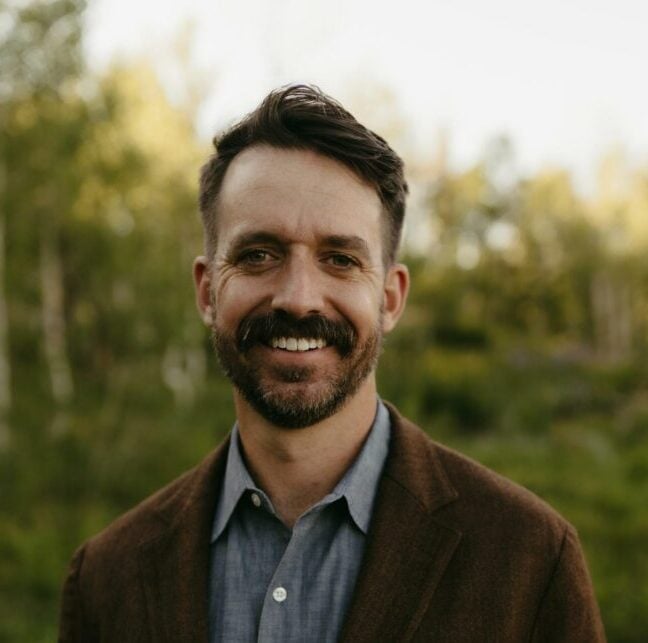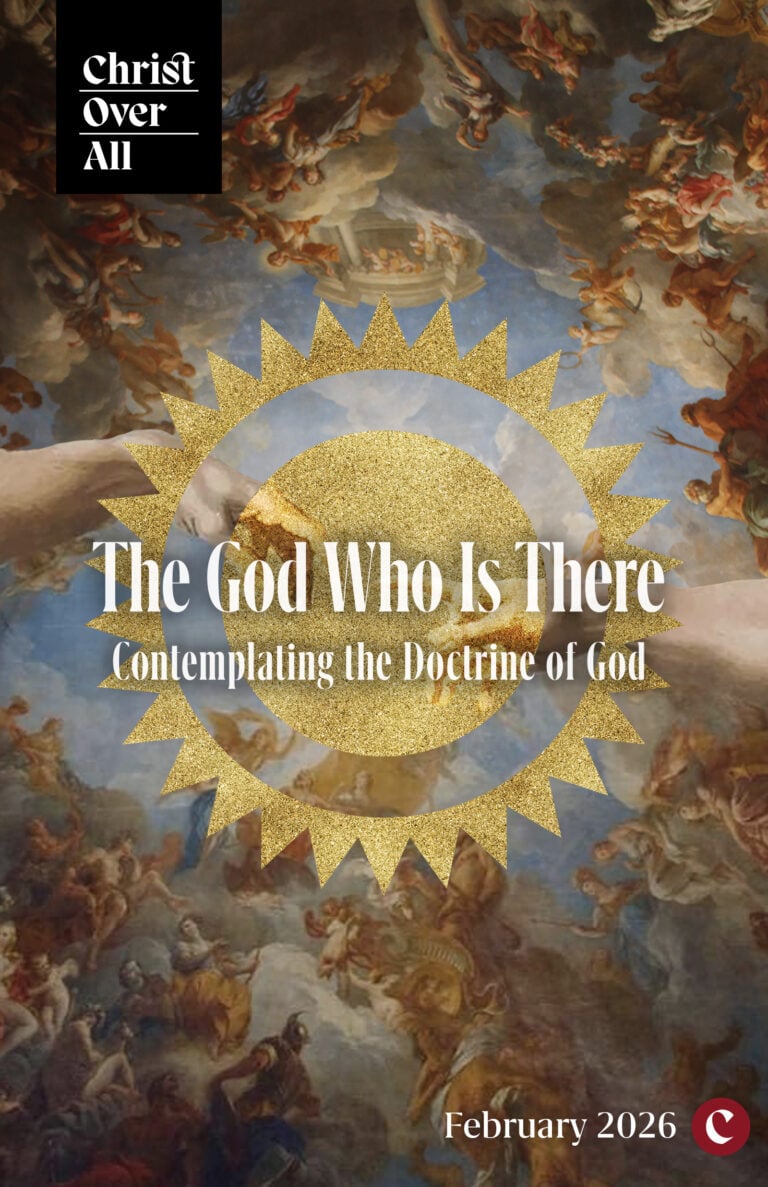Fathers are the natural protectors and providers of their homes. In America, over 25% of children live in fatherless homes, a number that has dramatically increased in recent decades. In previous generations, such children might have been referred to as bastards; yet today, this condition has become alarmingly common. Children who grow up without fathers are significantly more likely to engage in criminal behavior, some studies show they are up to two to five times more likely to commit crimes. Fathers are appointed to be the first authority in a child’s life, administering discipline and instruction, raising their children in the nurture and admonition of the Lord.
But in Colorado, activists, democratic legislators, judges, and the governor are conspiring together with a goal of creating more fatherless children. Just this year in 2025, a father was stripped of his custody rights because he refused to go along with his child’s “perceived gender.”
The War on Families
Tragically, this event was not an anomaly but part of a greater effort. Democrats have sought to enshrine this parent-child separation into law. House Bill 25-1312, known as “the Kelly Loving Act”—named after a man pretending to be a woman (his birth name is nowhere to be found, that is how effective these people are at hiding the truth)—was passed along party lines in the Colorado House (23 to 12). The bill stipulated that the state can take custody of children if their parents do not affirm their chosen gender. Every Colorado Democrat approved of this in the house. However, it ran into sand once many groups, including our coalition called Fight1312, caught wind of this demonic effort. We hosted two rallies and many citizens showed up to testify against the bill. The Democrats stacked the deck by allowing those opposed to the bill the same amount of time to testify as those in support of the bill, even though those opposed outnumbered them three to one. The bill was amended, the section authorizing the state to remove custody rights from parents was taken out, and it was signed into law by Governor Jared Polis.
God’s Word teaches that we should care for the widow and the orphan (Jas. 1:27). The Colorado Democrats twisted this, aiming to practice true religion by making more orphans.
This would have been an egregious bill if passed in its original form. But its current form is still egregious. It codifies “misgendering” and “deadnaming” as civil rights violations for any place of public accommodation. This means that if you were to call our transgender state representative—who pretends to be a woman under the name Brianna (his given name “Brian”)—you can be brought before the Colorado civil rights commission for committing the crime of “hate speech.”
Democrats have long enthusiastically supported the state taking custody of children. They view this as a caring and compassionate rescue from parents who have “dangerous” beliefs. In these policies, they show no respect for the institution of the family and God’s standard for families—most notably in their endorsement of the fantasy that two men can be joined in marriage. Children belong to the mother and father. But now, men who practice sodomy can purchase children.
Even though this bill did not pass in its original inception, the state is still going after families and fathers. In many if not most cases, it is the mother who wants to affirm the child’s newly perceived gender. It is often the fathers who stand opposed, and it is the fathers who become targets of the state. In the unamended version of HB25-1312, they labeled parents who do not affirm their child’s gender as guilty of coercive control or “abuse.”
If We Don’t Stand, Who Will?
The church should stand in defense of families. We should be the champions of God’s design and the created order, heralding the goodness of it and defending its beauty. The church should not be ashamed to stand against such wicked and foolish legislation. Unfortunately, some shy away and refuse to lift a hand. The bill produced disparate responses from pastors. Some, like us with Fight1312, have raised the alarm and called for aid. We have preached on this issue, shared it with our congregation, encouraged them to write letters and petitions, and posted publicly against this bill. A second group has taken a more reserved posture. They have suggested prayer and written letters of disappointment with this legislation. In general, they are uninterested in participating in public disagreement or lawsuits against the state. A third group thinks that publicly counter-signaling this bill is not just counterproductive but alienates the lost.
If a church, or any Christian institution, cannot speak against this kind of wickedness, then when would it rightly speak? If not now, then when else? As it turns out, those who are silent now had plenty to say about the BLM movement during 2020 or the importance of taking a COVID shot in the name of loving your neighbor. For many, they live under the progressive gaze. They want to appeal to the world and not come across as brash or harsh. They have gelded themselves from their ability to offer prophetic denunciations against wicked laws, instead reserving their ire, exhortation, and correction for the flock.
We should seek to understand these pastors and their reasoning. Perhaps we can develop some sympathy. In their mind, the world is lost. True enough. The lost need to hear the good news of the gospel. Also true. They have determined the best way for the world to hear the good news of the gospel is to avoid speaking about controversial matters and just focus on telling their flock to pray in general terms and making their sermons evangelistic. The focus of their ministry is saving souls. Everything is framed toward that end. Budget decisions, sermon series planning, staffing decisions are primarily concerned with “how can this help us reach the lost?”
When Missionality Goes Too Far
On its face, I think many evangelicals would sympathize with such an approach to ministry. The evangelical world in America has been obsessed with a uniquely American hunger for “revival”—often without defining what this means—for quite some time. Whether we are talking about the first and second great awakening or Billy Graham and tent revivals, “revival,” “saving souls,” and evangelism are seen as the north star of what the Christian life is all about. Some churches even ask job candidates how many souls they have saved as part of the hiring process. The evangelical industrial complex has provided many conceptual frameworks to fit this philosophy of ministry. Everything from “seeker sensitive,” to “missional,” to contextualization” to “triangulation” and “insider Muslims” have been created to give terminology to what has been assumed in American evangelicalism.
But this vision—the vision of the church as primarily an evangelistic institute—is facing its ultimate reductio ad absurdum (reduction to the absurd). In the face of a culture that loves death, how are we to reach people? Should we cater and bend to their love of death? Is there an evangelistic opportunity to reach these people with the hope of the gospel if they are not confronted with their love of death?
This is where groups one and two depart from group three in my taxonomy above. I do not know if there is anything that can help group three pastors and ministries within their conceptualization of the ministry task. They seem aloof and captured by a strategy for ministry which might have been somewhat effective in the 1990s. Maybe they can be saved from their errors. I think the most effective way to help them is to ask them if they love their neighbor. Because if they truly love their neighbor, they would not wish for the neighbor to become ensnared in sin. Furthermore, they should not want their neighbor, Christian or otherwise, to become subject to sinful, harmful laws. Mankind is condemned for the lack of conformity to God’s law. How cruel to hide this reality from a people up to their necks in sin!
Much has been written about the public witness of the church. There are endless theories, books, and articles that attempt to provide Christians with a vision of Christian public engagement. But at the end of the day, I think the question to ask, apart from conceptual frameworks, is straightforward: is this good for my neighbor? If the answer is no, then Christians should stand against it. It’s not always easy, but it is simple.
I have genuine doubt that some of these Christians who remain silent in the face of wickedness and perversion truly love their neighbors. They may be misguided or just ignorant. That’s fine. However, you cannot say “I love my neighbor” if you remain silent in the face of rampant perversion. The political and legal sphere is no exemption. You should not want your neighbor to suffer under the tyranny of transgender-affirming laws.
Here’s my hunch. The pastors and ministry leaders who refuse to raise even a brief concern about HB25-1312 know something particular about their church and ministry. They know that they have people in their congregation with pronouns in their bio. Perhaps they even physically express themselves in ways often associated with the so-called LGBTQ community. These people serve in the church and give of their finances. And this subset of their congregations likely voted for the same Democrat politicians who voted for the unamended version of HB25-1312, the one where the state could strip parents of their custody rights if they did not go along with the trans-delusion. If these pastors speak up against this bill, some of their congregants might leave. And if those congregants leave, their ministry might decrease in size both in terms of finances and attendance. I hypothesize that is the sticking point. Many churches today measure their faithfulness to God not in terms of honoring Him in their worship and life but instead on how successfully, by numbers or feeling, they reach the lost.
Conclusion
If a church, or Christian institution, refuses to speak against wickedness such as HB 25-1312, they signaled to the Christians under their spiritual care that they will do nothing when the state comes to steal children. They allow the manufactured fatherlessness to march on unimpeded. Some speak of leaving Colorado as if it is a lost cause. I don’t think that’s the first move. I think there are many options at our disposal in facing this battle. Several lawsuits are being filed against the state. Civil disobedience can be in order. There are a variety of options for Christians, churches, and Christian organizations to pursue to fight against wickedness in the public sphere. Too often, Christians leave the field of battle when they are needed most. But I think their instinct to leave is correct in another way. They need to leave. They need to leave those churches that remain silent while anti-biblical tyranny is passed into law. In Colorado, the family itself is at stake. Other battles, wherever you are, are bound to come.

